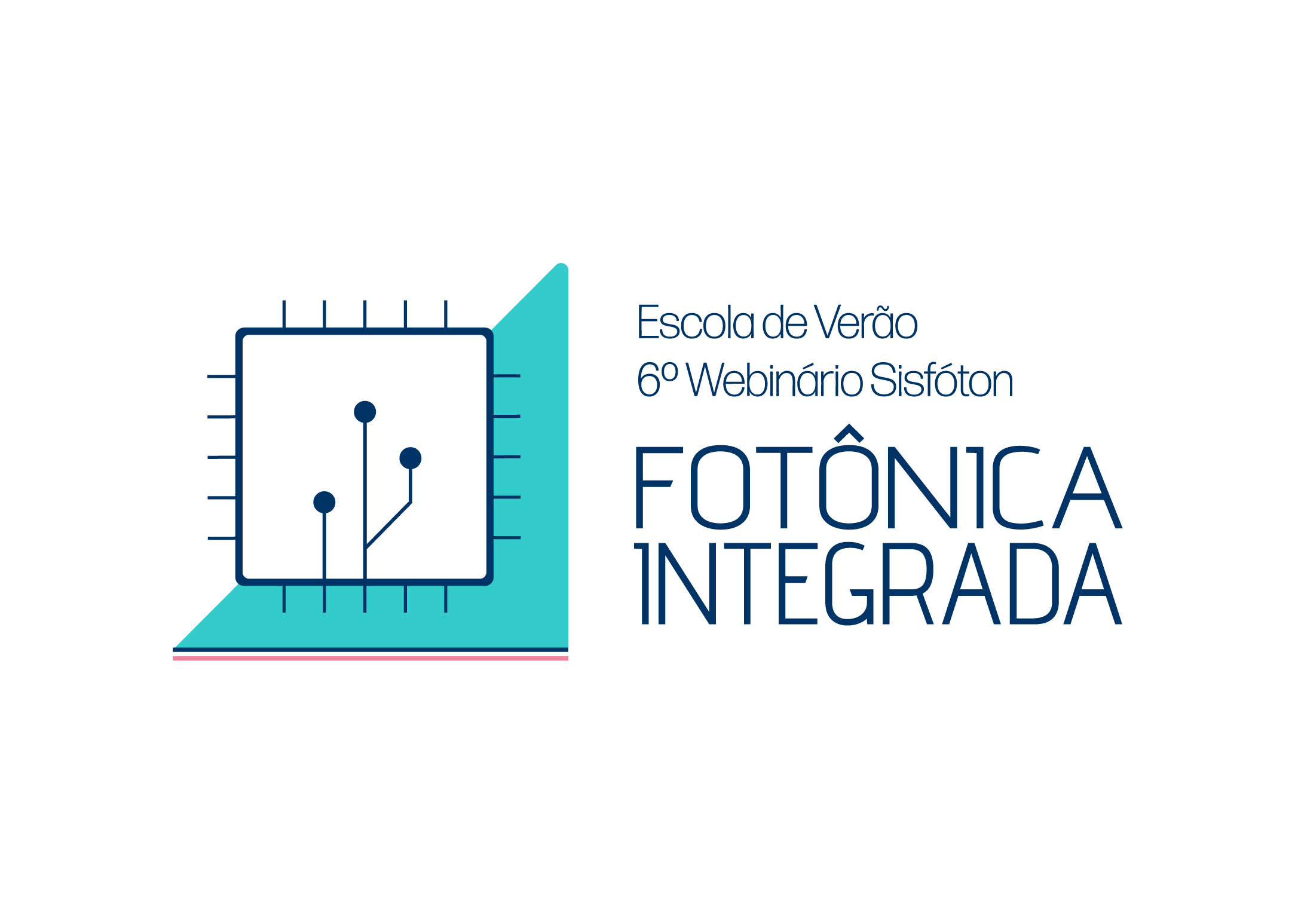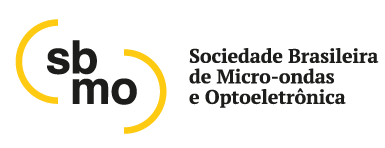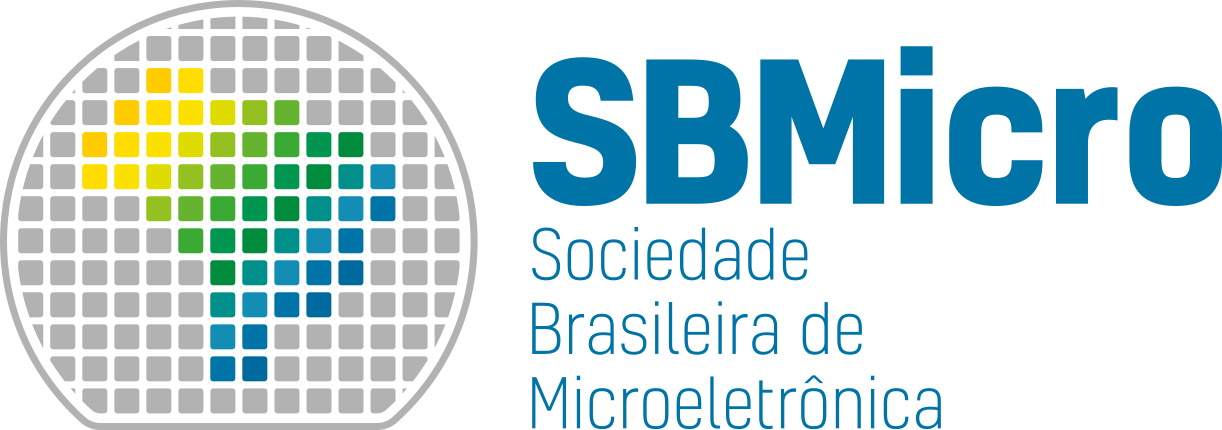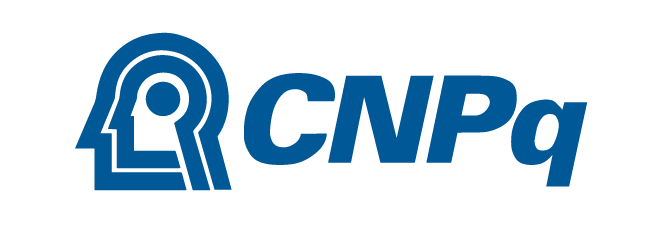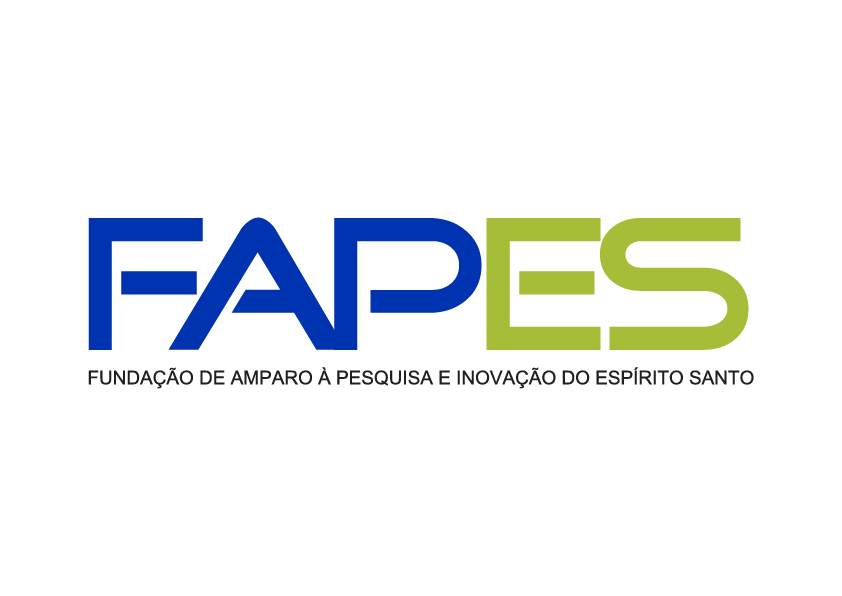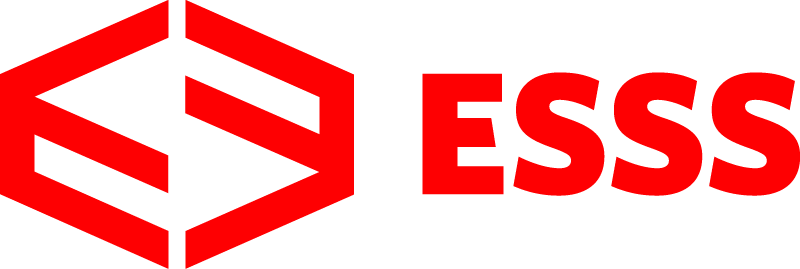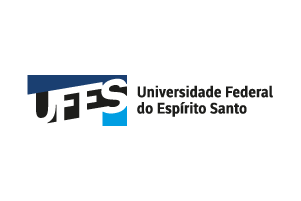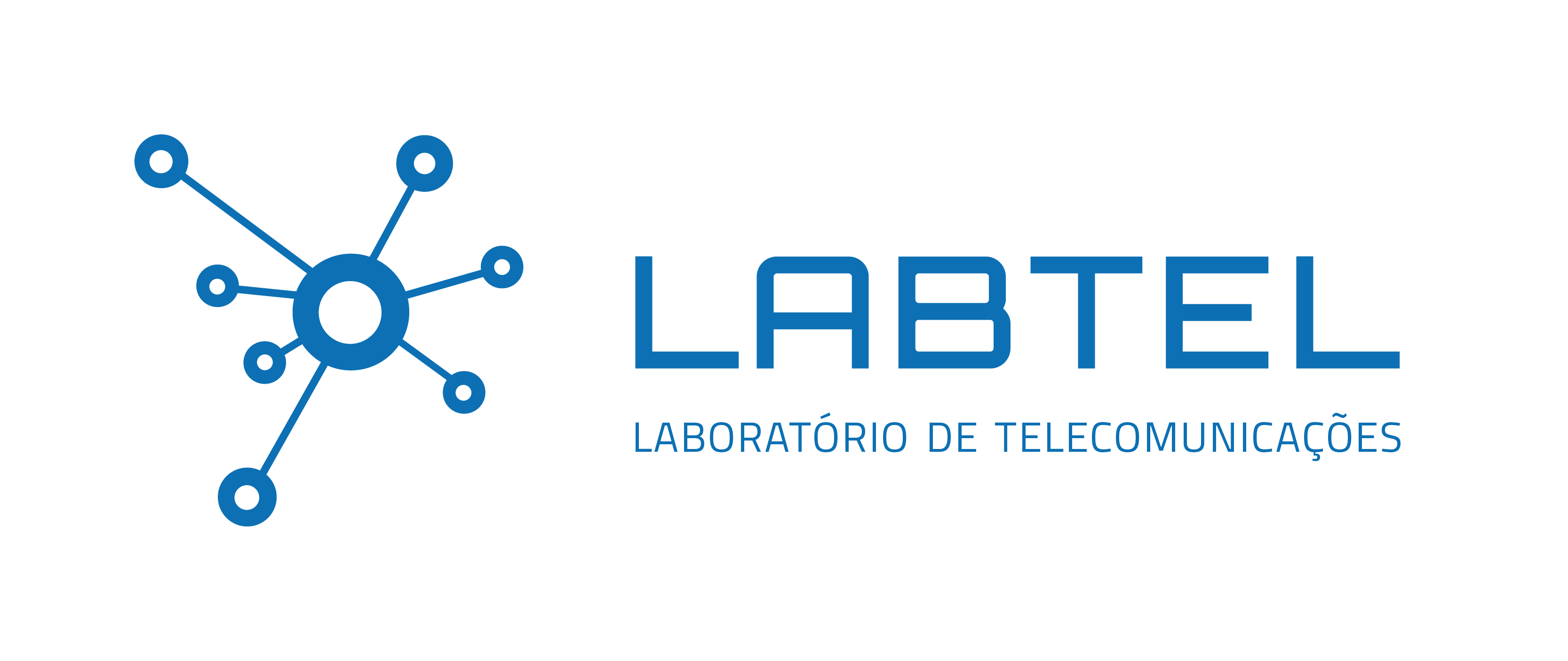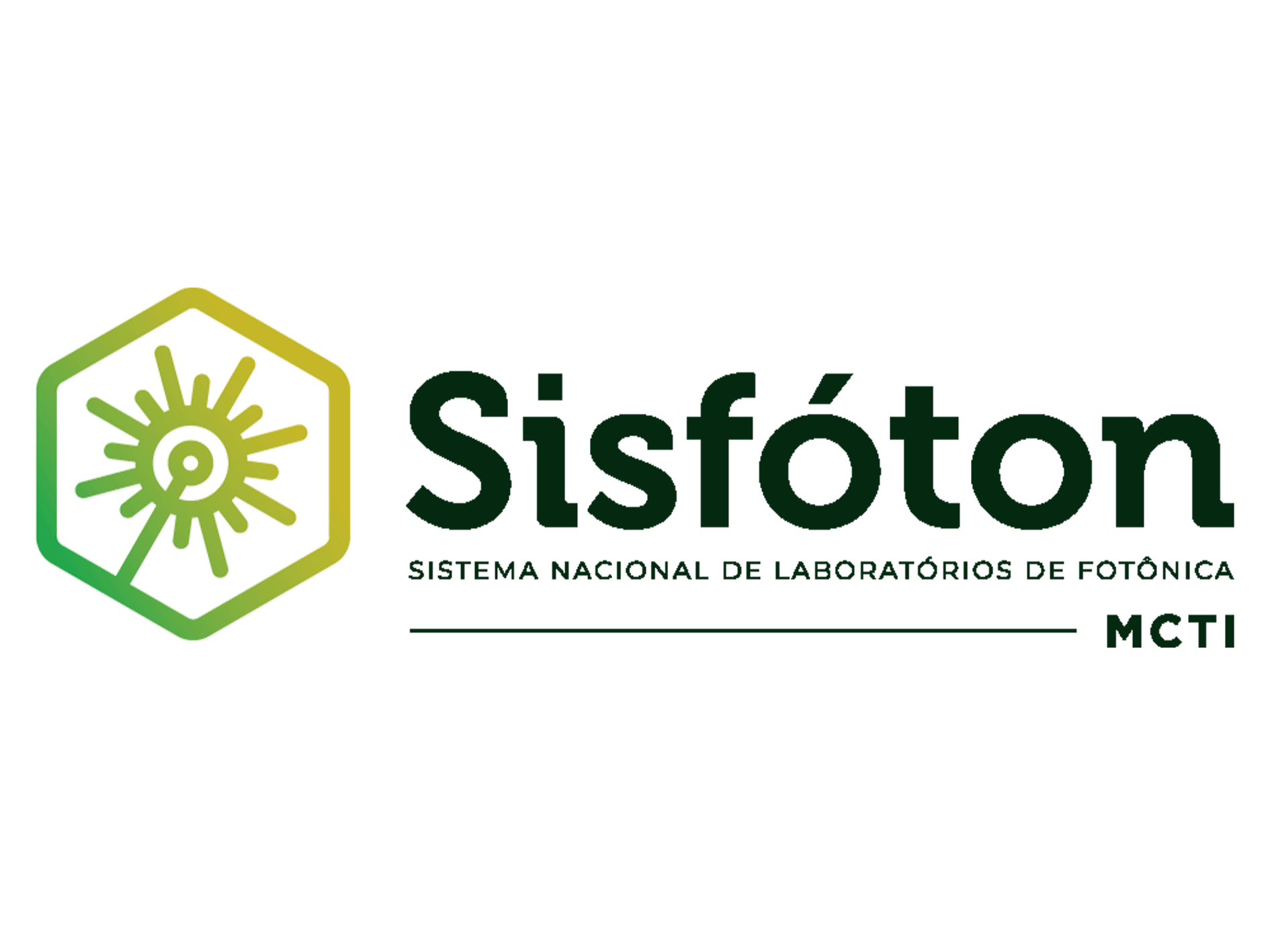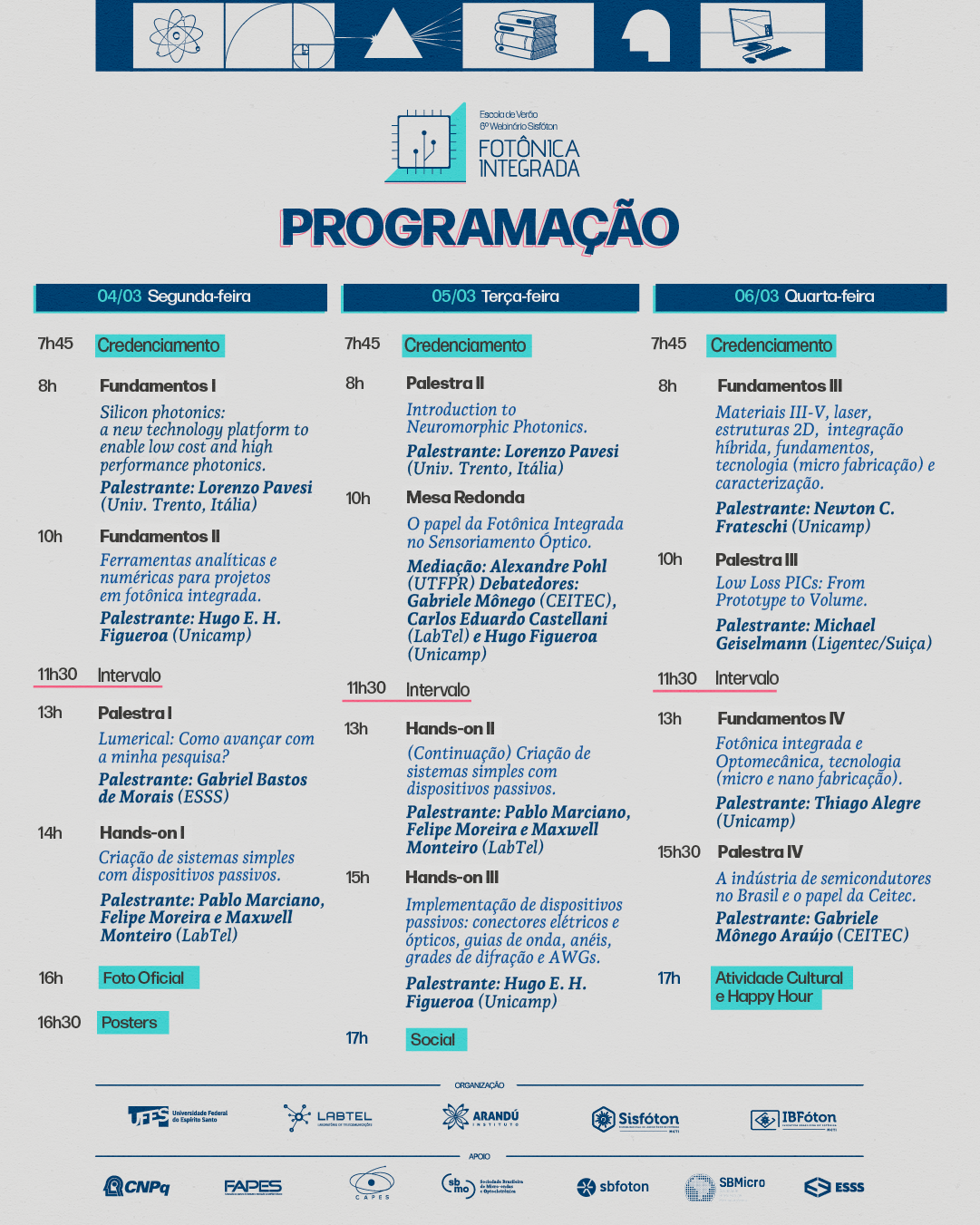
Veja aqui a versão PDF da programação.
Palestrantes
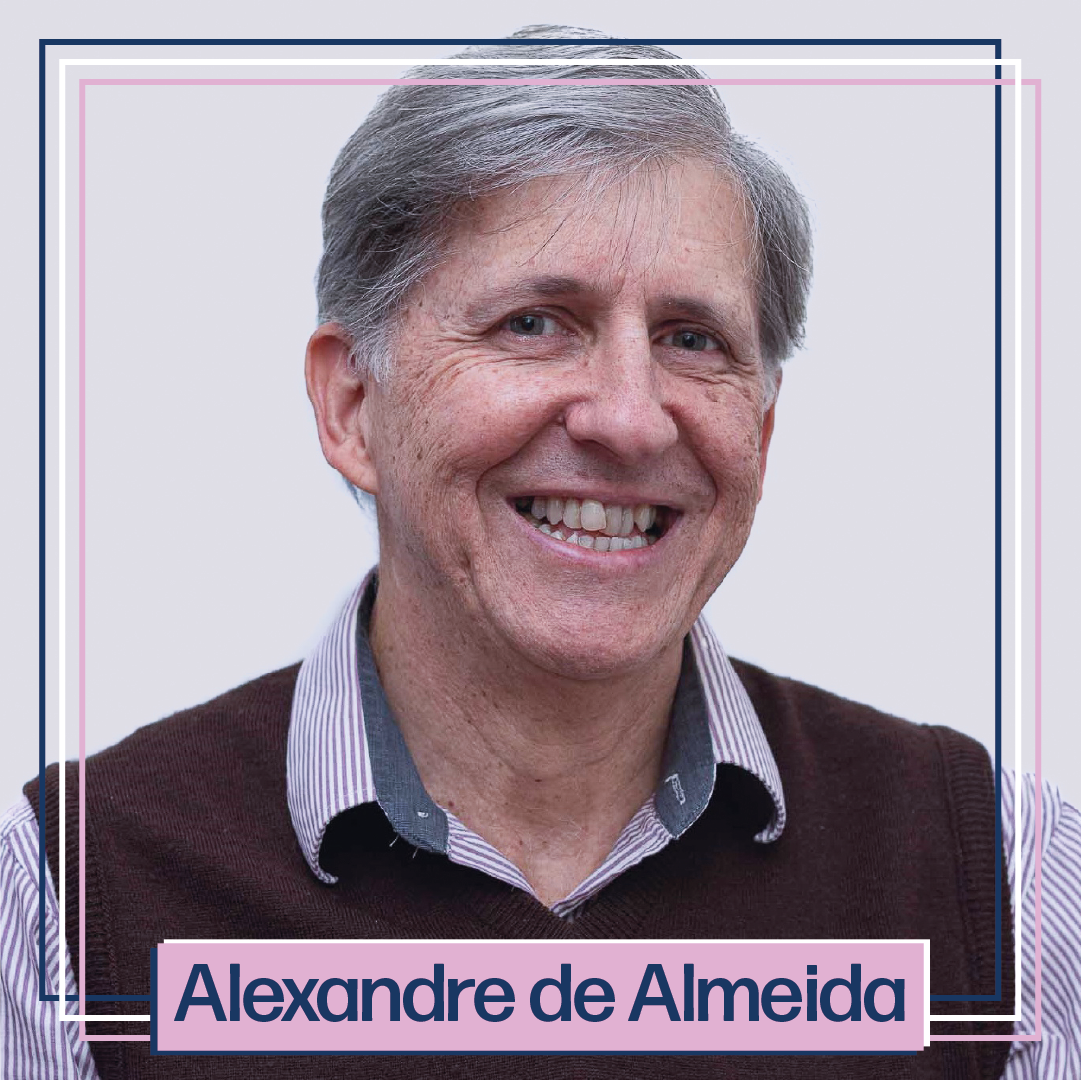 |
Alexandre de Almeida Prado Pohl é graduado em Física pela Universidade Estadual de Campinas (1982), onde também obteve o título de mestre (Física, 1987). Realizou seu doutorado na Universidade Técnica de Braunschweig, Alemanha, na área de Engenharia Elétrica (1994) e pós-doutorados na Universidade de Sydney, Austrália (2007) e no Institutto de Telecomunicações - Pólo de Aveiro, Portugal (2019). É professor titular da Universidade Tecnológica Federal do Paraná, onde leciona disciplinas relacionadas às áreas de fotônica e telecomunicações e lidera um grupo de pesquisa com enfoque em telecomunicações e comunicações ópticas. Tem atuado no desenvolvimento tecnológico junto a empresas, institutos de pesquisa e universidades, cuja colaboração resultou no desenvolvimento de softwares, protótipos inovadores e diversos artigos arbitrados em periódicos e anais de conferências nacionais e internacionais. É membro da Sociedade Brasileira de Microondas e Optoeletrônica (SBMO), membro senior da Sociedade Brasileira de Telecomunicações (SBrT), na qual atuou como vice-presidente de Finanças entre 2012 e 2015, e membro senior da Optica (ex-OSA). Foi membro do Conselho Universitário (2010-2013), do Conselho de Pesquisa e Pós-Graduação da UTFPR (2014-2017) e diretor de Pesquisa e Pós-Graduação do Câmpus Curitiba da UTFPR entre 2014 e 2017. Atualmente é presidente da Sociedade Brasileira de Ótica e Fotônica (SBFoton), termo 2023-2025.É bolsista de Produtividade em Desenvolvimento Tecnológico e Extensão Inovadora, nível 1C, do CNPq. |
 |
Hugo Enrique Hernandez Figueroa completed his PhD from Imperial College London in 1992 and conducted postdoctoral research at University College London from 1993 to 1995. He has been a full professor at University of Campinas (UNICAMP) since 2005, where he leads the Applied and Computational Electromagnetics Laboratory (LEMAC) and serves as the Dean of the School of Electrical and Computer Engineering (FEEC) at UNICAMP (2023-2027). Since 2011, he is an OPTICA (formerly OSA) Fellow. His work is focused on the R&D of photonics and microwaves devices applied to radars, telecommunications, and biotechnology. He has published more than 150 papers in reputed journals and serving as an editorial board member of Journal of IEEE/OPTICA Lightwave and Technology, IEEE Photonics Journal, and IEEE Journal of Selected Topics on Quantum Electronics. He has also taken on the role of general chair for numerous international conferences and has delivered nearly one hundred invited talks around the world. Currently, he serves as a member of the IEEE Photonics Society Publications Council for the term 2022-2024. He is a co-founder of RADAZ (https://radaz.com.br), established in 2017, which is a spinoff company from LEMAC. RADAZ manufactures and commercializes a groundbreaking product: a Drone-borne Miniaturized 3-Band Synthetic Aperture Radar (SAR) system. ResearchID: F-4692-2015 / ORCiD: 0000-0003-2419-6979. |
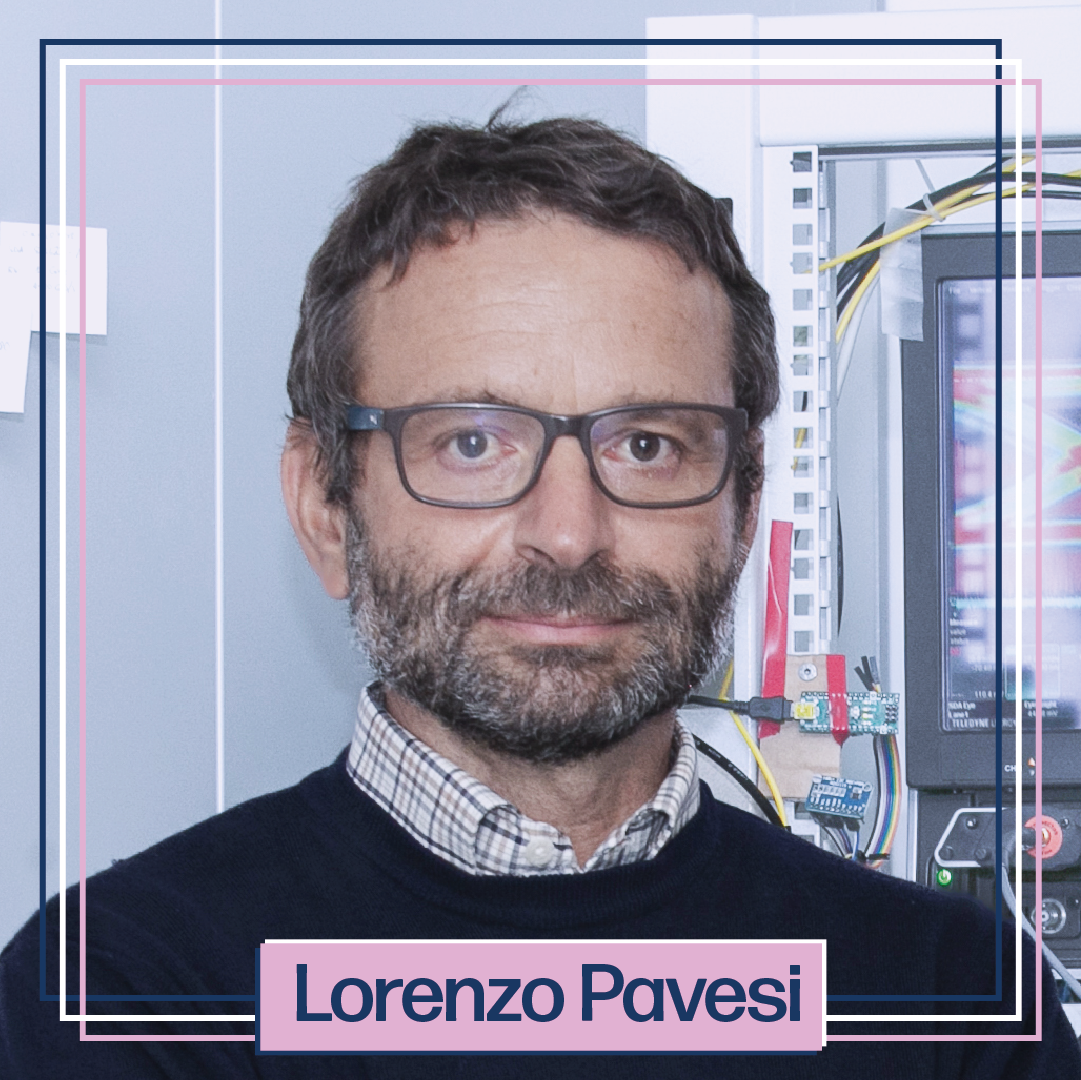 |
Lorenzo Pavesi is a Professor of Experimental Physics at the Department of Physics of the University of Trento(Italy). Born on the 21 st of November 1961, he received his PhD in Physics in 1990 at the Ecole Polytechnique Federale of Lausanne (Switzerland). In 1990 he became an Assistant Professor, an Associate Professor in 1999 and Full Professor in 2002 at the University of Trento. He leads the Nanoscience Laboratory (25 people), and teaches several classes at the Department of Physics of the University of Trento. He is the director of Q@TN, a joint lab between the University, the Bruno Kessler Foundation, CNR and INFN. He founded the research activity in semiconductor optoelectronics at the University of Trento and started several laboratories of photonics, growth and advanced treatment of materials. He was the first president and founder of the IEEE Italian chapter on Nanotechnology. He has directed 42 PhD students and more than 48 Master thesis students. His research activity concerned the optical properties of semiconductors. During the last years, he concentrated on Silicon-based photonics where he looks for the convergence between photonics and electronics. He is interested in active photonic devices which can be integrated into silicon by using optical nonlinearities and modified material properties. His interests encompass also optical sensors or biosensors and solar cells. A recent development is toward integrated quantum photonics and neuromorphic photonics. In silicon photonics, he is one of the worldwide recognized experts, he organized several international conferences, workshops and schools and is a frequently invited speaker. He manages several research projects, both national and international. He is an ERC grantee. He is a frequently invited reviewer, monitor or referee for photonics projects by several grant agencies. He is an author or co-author of more than 500 papers, author of several reviews, editor of more than 15 books, author of 2 books and holds 9 patents. He is chief speciality editor of the section Optics and Photonics of Frontiers in Physics and founding editor of the series Photonic Materials and Applications, a joint initiative of SPIE and Elsevier. Moreover, he sits on the editorial board of the ETRI Journal and of the journals Sensors and Applied Sciences: Optics and Lasers. He is in the advisory board of Glass-to-Power, an Italian start-up. In 2001 he was awarded the title of Cavaliere by the Italian President for scientific merit. In 2010 and 2011 he was elected distinguished speaker of the IEEE- Photonics society. He is a fellow of the IEEE, of SPIE, of AAIA and of the SIF. He holds an H-number of 62 according to Scopus and Web of Science, and of 77 according to GoogleScholar. |
 |
Michael Geiselmann (President & CCO) studied physics and engineering at University Stuttgart and Ecole Centrale Paris. After his PhD at ICFO in Barcelona in 2014 he joined the laboratory of Prof. Kippenberg at EPFL in Lausanne, where he advanced frequency comb generation on integrated silicon nitride chips towards applications and was involved in several international research projects. In 2016, he co-founded LIGENTEC and brought the company to the international stage of photonic integration. |
 |
Newton C. Frateschi is a Full Professor at the University of Campinas. He has served as the executive director of the Inova UNICAMP Innovation Agency and the director of IFGW-UNICAMP. He holds a PhD and a MSc in EE from the University of Southern California (USC) and a BS and MSc in Physics from UNICAMP. He is the author and co-author of several scientific papers and patents mostly in the area of optoelectronics and photonics. |
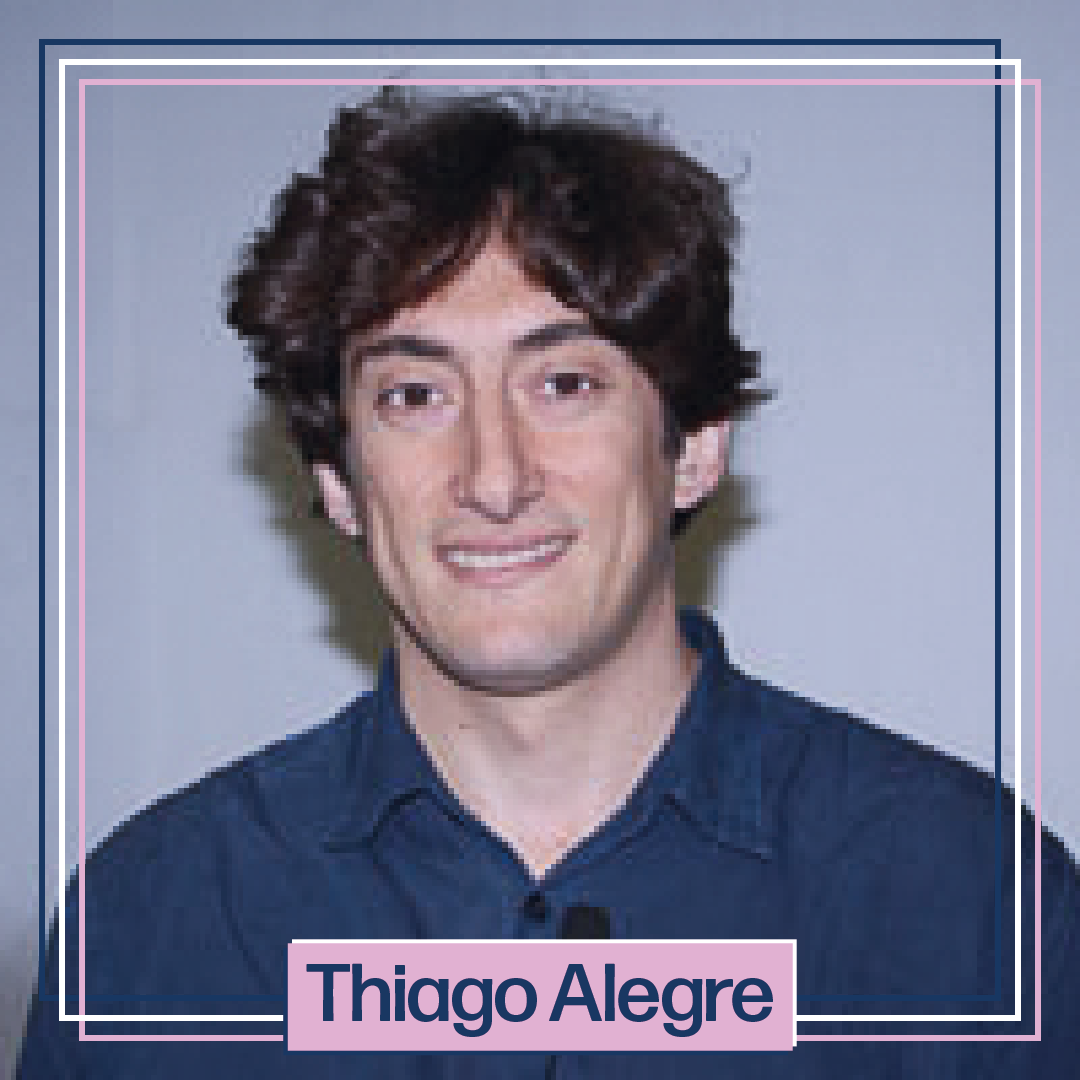 |
Thiago Alegre received his B.S. in Physics from Universidade Estadual de Campinas, Brazil, in 2003, and his Ph.D. degree in Physics from the same university in 2008. He was a postdoctoral scholar in the Department of Applied Physics at Caltech, USA, from 2008 to 2011. In 2011, he joined the faculty of Applied Physics Department at Universidade Estadual de Campinas as an Assistant Professor and Associated Professor in 2019. He is member of Brazilian Physics Society, American Physical Society, Brazilian Photonics Society and Affiliate Member of The Brazilian Academy of Sciences (ABC). His expertise are in the applied physics areas related to micro- and nano-optical cavities, optomechanical interactions and nanostructured systems. |
 |
Pablo Marciano é Pesquisador no LabTel na área de fotônica integrada e integração fotônica e RF. Atualmente cursando Doutorado, anseio pôr em prática o conhecimento que adquiri em minha formação acadêmica, por isso não tenho receio em explorar novas áreas da engenharia. Tenho ampla experiência em modelagem de sistemas de telecomunicação para estudo e aperfeiçoamento do mesmo. Busco sempre me empenhar para ver o local onde trabalho crescer assim com aqueles à minha volta. Tenho expandido meus horizontes e empreendido em outros campos ao abrir minha própria empresa em IoT. Graduado em Engenharia Elétrica na Universidade Federal do Espírito Santo (UFES) com ênfase em controle e automação. Mestre em Telecomunicações pela Ufes. Com experiência em Engenharia Eletrônica no exterior (Victoria University - Nova Zelândia). Empresário, com empresa de IoT, que desenvolve soluções de hardware e software voltados para gestão e monitoramento de recursos. |
